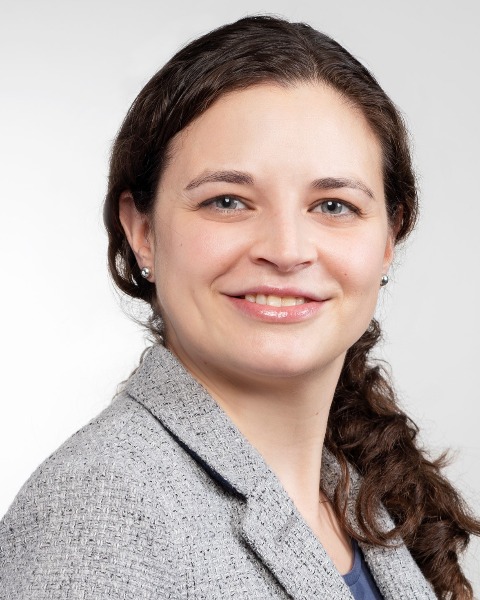Dissemination & Implementation Science
(PS9-35) Ongoing Utilization of a Mental Health Coaching Program Developed for Healthcare Workers at the Onset of the COVID-19 Pandemic

Emilie Famiglio, B.S.
Clinical Research Coordinator
University of Pennsylvania School of Medicine
Philadelphia, Pennsylvania, United States
Emily Becker-Haimes, Ph.D. (she/her/hers)
Assistant Professor
University of Pennsylvania
Philadelphia, Pennsylvania, United States- MW
Michal Weiss, B.S.
Clinical Research Coordinator
Perelman School of Medicine at the University of Pennsylvania
Philadelphia, Pennsylvania, United States - RK
Rachel Kishton, M.D.
Assistant Professor
Perelman School of Medicine at the University of Pennsylvania
Philadelphia, Pennsylvania, United States - SB
Sarah Beck, M.A.
Director
Perelman School of Medicine at the University of Pennsylvania
Philadelphia, Pennsylvania, United States - LB
Lisa Bellini, M.D.
Professor of Medicine
Perelman School of Medicine at the University of Pennsylvania
Philadelphia, Pennsylvania, United States 
Courtney Wolk, Ph.D. (she/her/hers)
Associate Professor
Perelman School of Medicine at the University of Pennsylvania
Philadelphia, Pennsylvania, United States
Author(s)
Co-Author(s)
Background: The COVID-19 pandemic has been associated with increased anxiety, distress, and burnout among healthcare workers in academic medicine. In response to the pandemic, Penn Medicine developed and launched Coping First Aid (CFA) in March of 2020. CFA is a volunteer lay coaching program that provides one-on-one emotional support and wellness resources for Penn Medicine employees. CFA coaches receive training in Psychological First Aid and basic therapeutic skills, such as empathic responding and problem solving, and ongoing supervision by a licensed mental health clinician. In order to evaluate and iterate on the CFA program, especially in the aftermath of the pandemic that preceded its development, it is important to understand who is utilizing the program and why.
Method: Using descriptive statistics, we examined administrative data from CFA encounters to date to understand program utilization. In addition to administrative reports of scheduled and completed encounters, CFA coaches also completed a structured record form where they indicated the client’s presenting concerns(s), intervention strategies implemented, and any resources or referrals provided immediately following each encounter.
Results: To date, 37 individuals have been trained and certified as CFA coaches and conducted one or more CFA sessions. Since March 2020, a total of 944 CFA sessions have been scheduled by 498 unique clients. Of the 944 scheduled sessions, 72.8% (n=688) were completed and 27.2% (n=256) were reported as no-shows/cancellations. Coaches recommended to 42.1% (n=290) of clients that they schedule one or more follow-up appointments and 20.3% (n=140) of clients were referred to professional mental health care. Commonly reported presenting concerns in sessions were emotional (55.1%), physical/somatic (27.3%), and other concerns (24.7%). More specifically, concerns included feeling anxious/fearful (29.8%), feeling sad/tearful (18.3%), and having difficulty sleeping (15.1%). Coaches reported utilizing the following intervention techniques most frequently during CFA sessions: providing practical assistance (91.2%), facilitating connection to social supports (68.0%), and implementing strategies to increase the client’s safety and comfort (62.8%).
Discussion: Our data suggests that there is a continued need and desire, even post-pandemic, for mental health support via CFA and that CFA coaches may serve a particularly important role in providing practical assistance and connecting individuals to other resources. CFA may serve as a model for other health systems seeking to develop and implement mental health supports for their workforce without overtaxing the already stressed professional mental health service system.

.png)
